Talking TV: Canada’s ‘Son Of A Critch’ Looks To Charm U.S. Viewers
Tolstoy wrote, “Happy families are all alike; every unhappy family is unhappy in its own way.” Good coming-of-age TV shows know truly entertaining unhappiness is in the details.
Mark Critch’s upbringing in 1980s Newfoundland, Canada, has its own vividly unique palette of family woe. He’s used it to color Son of a Critch, a comedy series based on his memoir of the same name. Based in St. John’s, a city about as far on the edge of North America as possible and culturally as remote, Critch’s show navigates touchpoints of pubescent awkwardness, heartbreak and elation common to us all from a particular landscape unfamiliar to most.
Son of a Critch launches for U.S. audiences on the CW this month hoping to find a similar embrace that met another Canadian export, Schitt’s Creek. But the shows employ a vastly different comedic tact and tone, with Critch opting for a sweetness, wistfulness and good heartedness that eludes most comedies.
In this Talking TV conversation, Critch discusses his own influences informing the show, the enduring draw of the ’80s for television and what it’s like having Malcolm McDowell play his grandad, while playing his own father in the series to boot.
Episode transcript below, edited for clarity.
Michael Depp: Mark Critch is a well-known name and face to Canadian audiences, where he has been a mainstay of its long running comedy series This Hour Has 22 Minutes. The native of St John’s, Newfoundland, is the author of a memoir, Son of a Critch. It has been adapted into a series of the same name now going into its third season on the CBC. That series is a 1980s coming-of-age story of Critch’s family, and in it he plays his father, Mike.
Son of a Critch has just been picked up by The CW, where it’s hoping to find the same kind of breakaway success that another Canadian series, Schitt’s Creek, found when it made its way across the border.
I’m Michael Depp, editor of TVNewsCheck, and this is Talking TV. Coming up, a conversation with Mark Critch about Son of a Critch. We’ll be right back.
Welcome, Mark Critch, to Talking TV.
Mark Critch: My great pleasure to be here. Thanks for having me.
Thank you. So, Mark, your show is Son of a Critch. It’s following on the heels of Schitt’s Creek, an enormous success in the U.S. Why are you Canadians always trying to swear in your show titles without technically swearing?
Well, you know, this one was a little different in that this was the title of a book first. And I never expected that this would be a television thing, you know. I’m known in Canada for TV. So, I thought I was branching out and doing something different by writing a book, which is now become more TV. So, yeah, it does seem like we’re making swears, but cute, Canadian polite swears, you know, things that aren’t that offensive.
Yeah. Very polite. You are a native of Saint John’s, Newfoundland, one of the harder to reach corners of Canada and occupying its own extremely bizarre time zone. That is one-and-a-half hours ahead of Eastern time for those who are unfamiliar with that fact or that zone. It would seem that the half-hour difference makes for a kind of lifelong off kiltered-ness for Newfoundlanders. Do you find that to be the case?
It is a little different. Newfoundlanders love their unique things like, you know, we used to be our own country until 1949, had our own passports and our own money and things like that. And we’re known for icebergs and whales and being out in the Atlantic, separate from the rest of Canada. So, we have an outside-looking-in kind of an attitude, which kind of makes for good comedy, I think.
Son of a Critch is an autobiographical show of your 1980s childhood there. What were the ’80s like in Newfoundland?
The ’80s In Newfoundland were kind of like the ’60s everywhere else, I think. We were, you know, a lot of Catholic and Protestant type stuff going on. We’re based on the fishery, big cod fishery here. Now it’s all oil. But back then primarily it was it was the fishery, which collapsed in 1992.
So, economically things weren’t that great at this time when I was growing up. But we always got through hard times with humor. I guess it’s kind of the lot of Irish people, they’re Irish and the English settled it. So, a lot of dark humor, a lot of storytelling, big, long winters. A lot of people perform music, a lot of people are funny, a lot of comedians are from up here. So that’s one way we dealt with that, I think. And that’s inbred, the ability to make people laugh and to keep each other laughing. I think that’s a lot where a lot of the story comes from.
I suppose winter cannot be overstated. The enormity, the length, the darkness of that in Newfoundland. Can it?
Absolutely not. You know, it’s, you know, like I say, we’re out in the middle of the Atlantic and it’s a place where a lot of people live in isolated communities and stuff like that. So, the only way to get together and get through all that sometimes is through community, helping your neighbors. And I think Newfoundlanders and Labradorians are known to be very friendly people. There’s a Broadway musical, Come from Away, about how Newfoundlanders welcomed the world during 9/11, so that’s looking out for each other, which is a big sense. There’s a lot of sense of family here, which I think comes through in the show.
I want to come back to the place in a second, but first to the time, there seems to be this enduring TV pop culture interest in the ’80s, probably the biggest recent example being Stranger Things. I mean, I grew up then myself, so I have my own biases. But what is it, do you think, about that decade that keeps the pop culture hunger for it carrying on as strongly as it does?
Well, I think there’s an explosion of pop culture then to where maybe it was OK to like some cheesy things at that time, you know, the ’80s and Reagan and Must-See TV and Rubik’s Cubes and it was like big neon, they’re in your face. And, you know, consuming things was big, you know, but I think everybody has a style just for whatever time they grew up in.
And our show, some think it’s like an ’80s -set show. But for me, when I was a kid watching The Wonder Years, it was set in the ’60s and I appreciated that, but I was the same age that Fred Savage, his character, was in the show. So, for me, I was watching kids my age fall in love, get bullied, be anxious about going to a party, and beer might be there and all this stuff. It was all of those things. I think you can watch it for nostalgic [reasons], people our age, but younger people, I think we find, are watching it for the storylines about the young people.
We get the great thing with our show is we’re lucky that we get a lot of multigenerational [people] watching it. We get people’s families watching it at the time that it airs, old school. And the story I keep hearing is that kids, when it first came on were saying to the parents, I like this: Hey, click play next. Like, let’s watch the next one. They said, you can’t. It’s coming out in a week and they’re like no, mom, you’re such an idiot. You just click play next. And so, they were having these arguments in the first time, kind of analog watching together as a family.
I’m glad you brought up The Wonder Years, because it does seem to be watching it that there are resonances of that show. I also felt like a little Jean Shepherd, A Christmas Story, in there.
Christmas Story big time. I mean, I remember seeing it as a kid, and it was like a light bulb went on in my head. It’s that same thing about talking about another time, which was my parents’ time in a lot of ways. And yet you can relate to the characters in it because every generation goes through these same things, the same quest to become somebody, and you had to go through all these trials. So, I related to that the same way I relate to The Wonder Years. And I think when I was in the ’80s, watching The Wonder Years, the ’80s are now farther away than The Wonder Years were to me in the ’80s, if that makes sense. You know, it’s even further back in time.
The show is actually shot in Newfoundland. Was that hard to put together? Was there a TV and film industry in place to support you, or did you have to kind of help build it?
When I was a kid, I wanted to become an actor and a comedian because of a locally shot TV show called The Wonderful Grand Band, which combined music and comedy. And yeah, there’s always been performers here, but the TV industry really grew here. There have been lots of Canadian TV shows like Republic of Doyle, and it was a big show from here, shot here.
But more and more films are coming. Ben Stiller was just here shooting a feature. Peter Pan and Wendy shot here recently. People may know the film with Dame Judi Dench, The Shipping News, shot here. I was in a movie here with Brendan Gleeson recently, not that long ago called The Grand Seduction.
And so, yeah, there’s always a big film industry here for the size of the place and Newfoundlanders, I think, we have a way of hitting above our weight, things like that. So yeah, it’s very easy. If you were a grip or a lighting person and you wanted to work here in Newfoundland/Labrador, you easily could have had a career working every day for the last 30 years.
And you just walk down the road to shoot from your house.
Yeah, like when I was a kid, everybody told me, you have to go away. You had to go to the States. You have to go wherever to become an actor. And now I leave my house and I’m on set of our school set, which is an actual school in, I would say, a five-minute walk from my door, which is something I never thought could happen. It was impossible, really, when I was the young Mark you see on TV now. So, all my life I was looking at that TV screen to see the show and dreaming about being on TV. And now I’ve remade that house to be on TV right where I live. So, it’s quite unique.
Quite a few meta experiences, it seems in this. You have rebuilt your childhood home on a soundstage there, haven’t you?
Yeah, with a lot of things from my childhood home. Our house has been hasn’t been there since 1994, something like that, it’s been gone. So, I sketched it out, show a lot of photos, things like that. And I had a lot of furniture for my parents’ house kind of in my basement, some of it. So, if you’re watching to show the dining room furniture is the stuff from my parents’ house, The pictures around it from my family home, the layout is exactly the same. And even the radio that my family listens to in the kitchen is the radio that I listened to as a kid that my father, who was on the radio as a newsman, I’d listen to him every morning on that same radio.
So, sometimes I play my father in the show, sometimes I’m wearing his red blazer, which was the color of his news station with a crest, sitting at the table looking at the radio that he used to be on when I was a kid. And in the corner of my eye is our dining room furniture. And I’ll sit and I’ll think, what have you done, you madman? Surely therapy would have been cheaper than all of this. It really can be melancholy at times because my parents are no longer with us. But then I’ll hear Benjamin laughing, the kid who plays me, with Malcolm McDowell, they’re teasing each other, and the house is kind of there again and filled with laughter again. And this kind of new family has formed, and these new connections are there. Any kind of sad feelings are gone in a minute.
It sounds like a healthier kind of rebuilding of your childhood than from Nathan Fielder’s The Rehearsal on HBO. That’s a dark, twisted version of that. You’ve got sort of a more mentally balanced version, it sounds.
Nathan’s a really good friend of mine. We worked together on the show 22 Minutes in Canada for years. And yeah, we are kind of doing the same thing, but in a sweeter way. I’d never thought of that before. That’s a great point. But the skeleton, the spine of every story is true. A lot of it comes from my real-life experiences. A lot of stuff is in the book. And but you can err on the side of kindness and sweetness and maybe turn something ever so slightly differently the way you wish it had gone. And that’s a real nice little gift to give yourself in a way sometimes, you know, to make things this time around work out a little better for everybody. It’s quite nice.
You play your own father, as you’ve mentioned, on the show. What is that experience like?
Well, it’s interesting because you grow up kind of making fun of your dad or maybe one of the first roles anybody ever plays is their parents, kind of imitating them as a kid. And for me, I had, you know, written stories about them in the book, and I’d always known my dad was very well known in Newfoundland because he was a radio news guy. And everybody in town did an impression of my father because of his really distinct, Newfoundland voice.
But playing him is even different than writing here, because it really forces you to look at everything through his eyes, through his perspective, through his point of view, and sympathize with him a lot more than you may have done. And it certainly has drawn me closer to him, I think, than I’d ever been, because you really start to realize, oh, you know what? I see why he was like that now. Or I can understand Mom and Dad’s relationship a bit better this way. And well, that makes sense to me now, a bit more.
And it causes you to reflect on a lot more. And I think, you know, we all have issues with our parents. But certainly, the more I thought about them, the more reflecting on everything like that, you certainly appreciate them more and sympathize with them more and are certainly more thankful for everything they did.
And your granddad on the show is played by Malcolm McDowell. Are you sneaking in any Clockwork Orange references?
I was very tempted to put a Clockwork Orange poster in my older brother’s bedroom, but then I thought, you know what? That will take you right out of it, you know? And at one time, Singing in the Rain was going to play or something. But Malcolm’s like, oh, like in the movie. I was like, oh, right. No, you have an iconic Singing in the Rain scene. We can’t use that because it will pull people out of it. And that’s the thing, you know. Malcolm is such an icon and looks so scary and has done so many scary roles, but he is a sweet, sentimental, loving, kind, wonderful man, a real pussycat of a guy. And he’s still got that twinkle in that eyes, a bit of wickedness. But I thought Pop would be, you know, harder and crankier and whatnot. And he immediately started playing a more fun-loving and sweeter and much more of a twinkle, which is something I didn’t expect, but is exactly the right thing to do.
That’s great. You’re pretty well entrenched with Canadian audiences on CBC. You’re going into your third season where this show has been among the country’s top five comedies. You’ve been a longstanding cast member of the very popular This Hour Has 22 Minutes. Now you’re going to be on the schedule of a very overhauled CW network in the U.S. What are your feelings about introducing yourself to U.S. audiences?
Well, I think you kind of double down on the authenticity and specificity of the place, you know, whether it’s Derry Girls or Fargo or what have you. I think American audiences will embrace things that are from a different place and a different story. And, you know, that’s what people I think are looking for these days.
But the thing is, with Newfoundland it’s different, is odd, it’s unique. But, you know, if you’re from Boston or someplace, you’re looking at that. There’s a lot of similarities, and I think there’s lots of people in America will be able to see their own kind of working-class family in it. And I think everybody’s felt like an outsider and everybody, even the more popular kids in school, probably at times feel like an outsider, like they’re living up to something that they’re not really.
There’s lots of room there for people, even though it’s an odd place in the middle of the Atlantic with a different time zone, they can look and see that there’s far more similarities than there are differences. The way we grew up watching The Wonder Years that happened in the States in a different time, but I connected with the people, and I really hope that people will see a bit of themselves in Son of a Critch.
Well, it’s interesting that you’re sort of burrowing into the specificity of the place that Schitt’s Creek, on the other side, you know, didn’t need to be Canadian. You might, you know, be forgiven for not knowing that it was Canadian specific. And this show is so, so much about its place and time specifically.
Do you have an ideal number of seasons you’re looking for with Son of a Critch?
Well, we’re at three now, I think six would definitely wrap it up quite nicely, because each year we’re doing a different grade. So, we started in grade seven. This year is grade nine. Next year we go to high school in Canada. Americans will be starting soon on season one. But I would like to see them graduate high school and then, you know, spoiler alert, I live.
So, I mean, there’s lots of adventures yet to come. Benjamin Evan Ainsworth plays me and he’s an incredible young lad and very, very gifted. He was the voice of Pinocchio with Tom Hanks in the Disney recent version of Pinocchio they did as well, shooting a film now with Bryan Cranston. He’s a busy young man, but he seems quite content here, enjoying his summers in Newfoundland. So, we’ll hang on to him as long as we can.
Right. And so do you have kind of a bookend event, like Derry Girls, for instance, was always kind of moving toward the Good Friday peace accord. Is there a singular event that you have in mind to kind of, that’s the point at which it ends?
Not a historical one. I have a personal one, definitely, and know how I want it to end. But we will have to wait and see, but not necessarily historical while we’re having great fun. I think really with that too, the timeline, it would match up with the cod moratorium in Newfoundland and Labrador, which was the closure of the fishery. So that would probably be our version of that.
A dark note on which to end a very light show.
Well, that was I’m not a fisherman though it was bad, but nobody in our family fishes. But my great-grandfather was a fisherman. All the Critches were fishermen up until the character of Pop that you see in the show. So, in a way, it is sort of the new Newfoundland. The future of the place is diversifying and, you know, take a chance to follow your dreams. Growing up, I mean, my great-grandfather was a fisherman who drowned, and for him in Newfoundland, Labrador at the time, the idea that you could follow your dreams, it didn’t exist. I mean, you had to eke out an existence. So, you know, it’s pretty neat that I’m able to do this thing and tell his story and their stories to a whole new country, you know? They fished for fish and I’m fishing for laughs.
Well, Son of a Critch is a very charming show. It’s a very lovely show. And I mean that in the best way. Coming soon to the U.S. in July, coming to TV screens on the CW. Mark Critch, it has been a pleasure speaking with you.
A real joy. Thank you so much for taking the time.
Thank you. You can watch and listen to past episodes of Talking TV, no matter what time zone you’re in, at TVNewsCheck.com, on our YouTube channel, along with an audio version on all the major podcast platforms. We’re out most Fridays with a new episode. Thanks for joining on this one and see you next time.





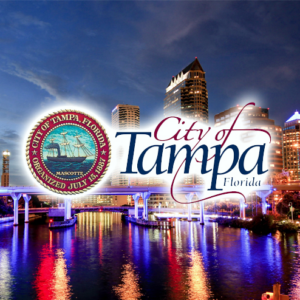


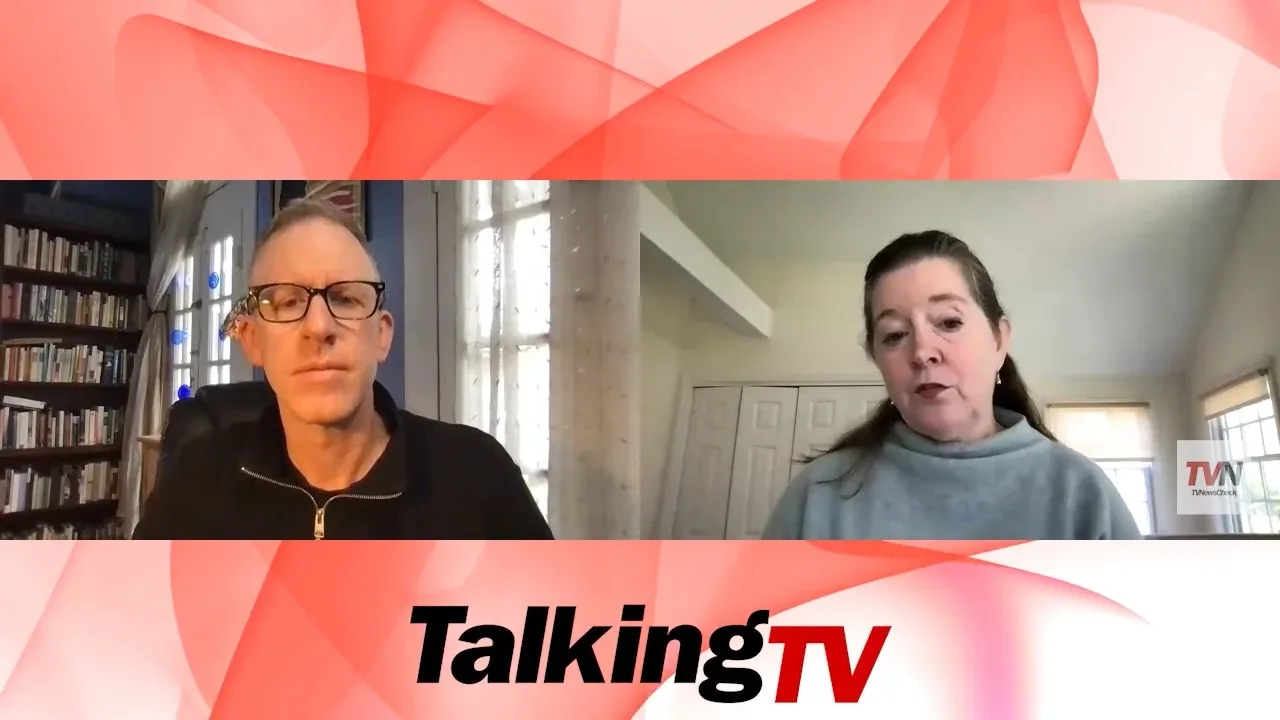

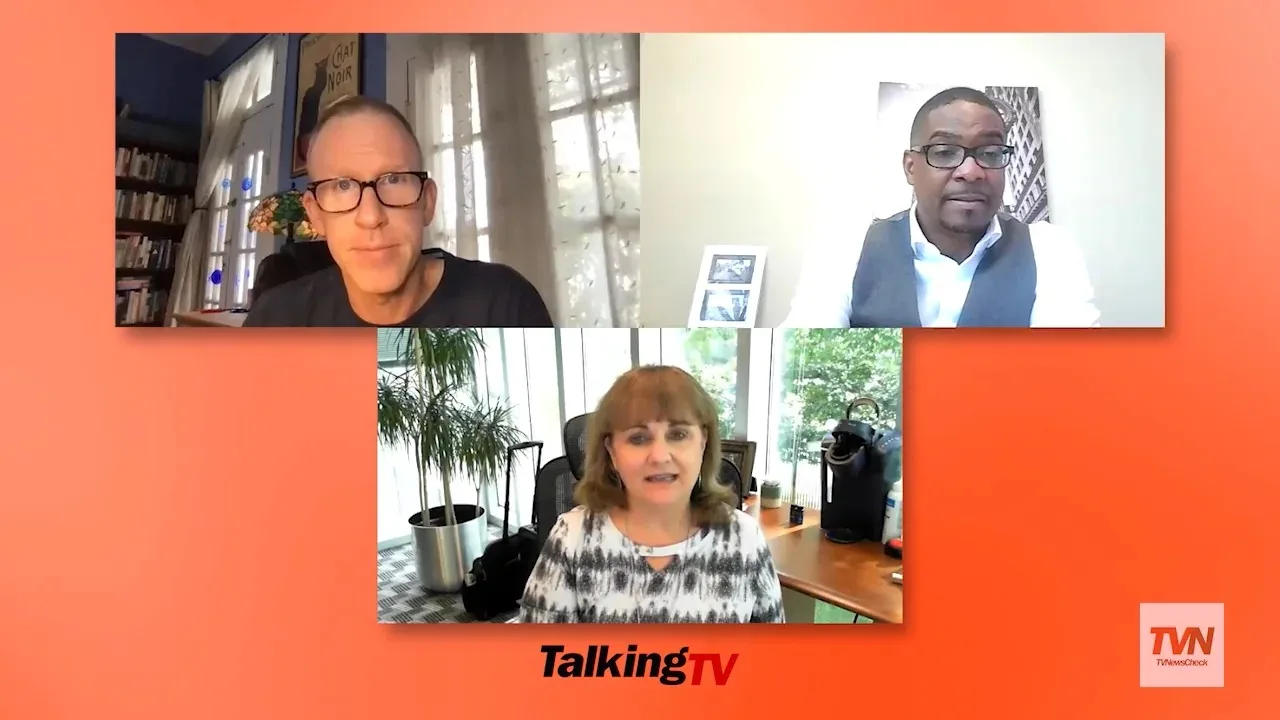
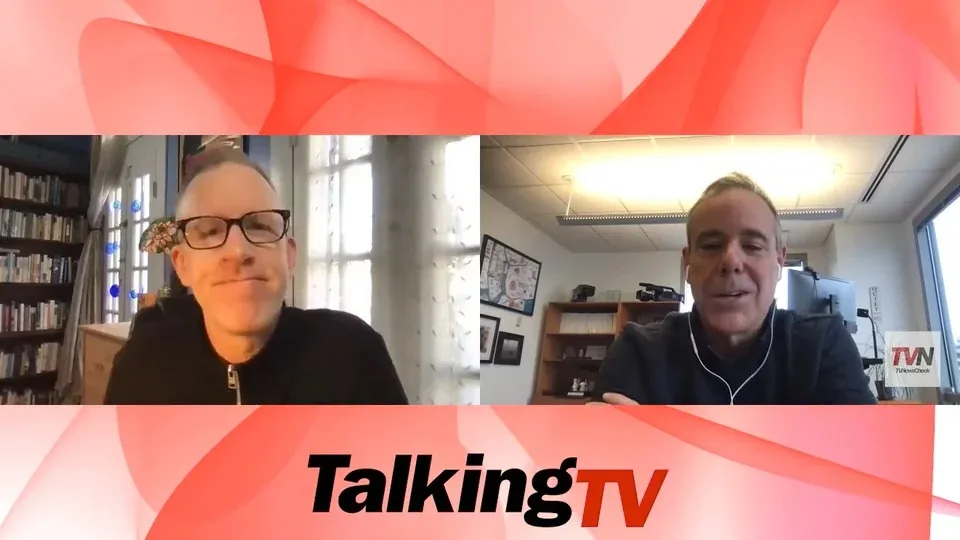


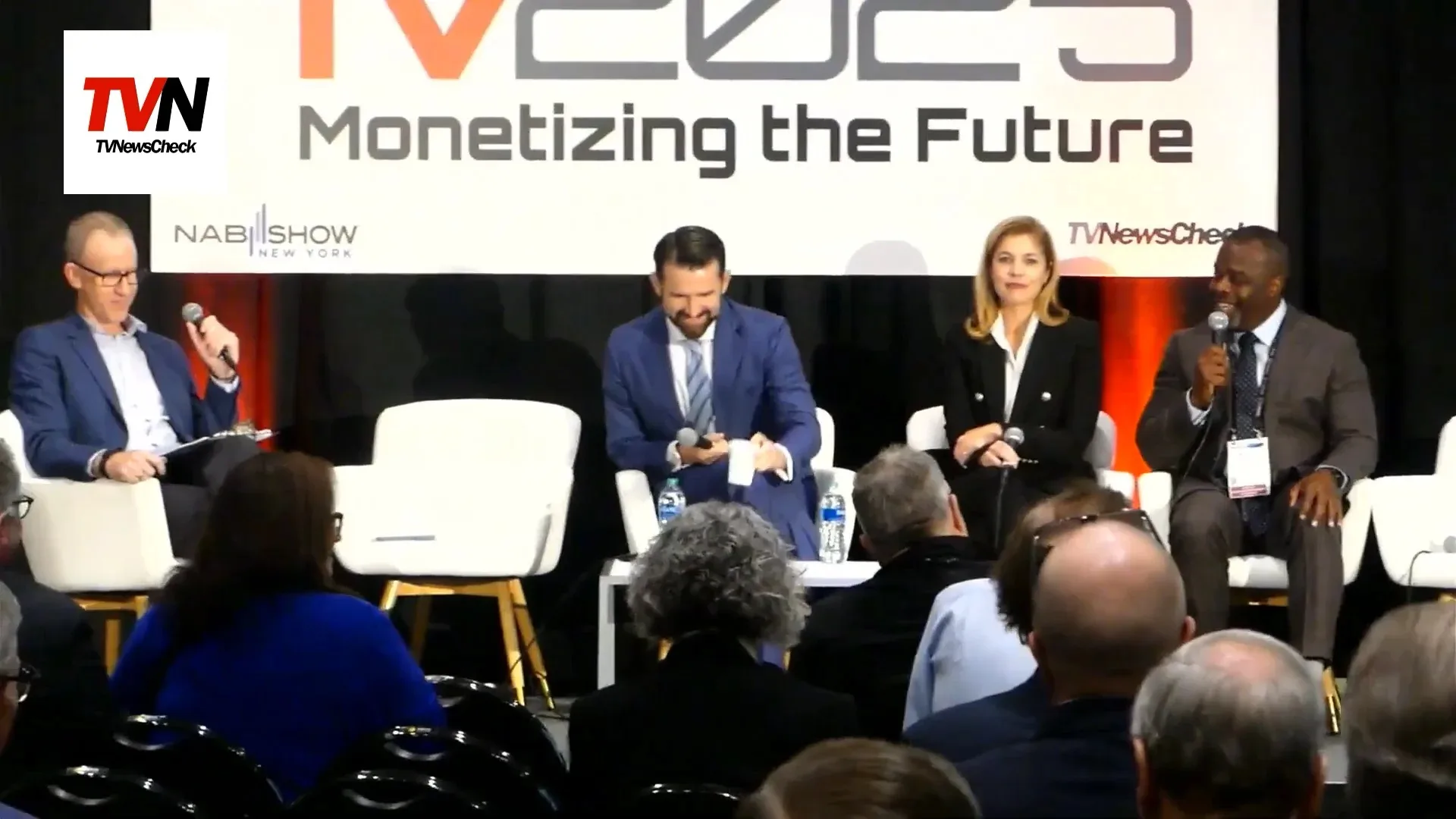
















Comments (0)